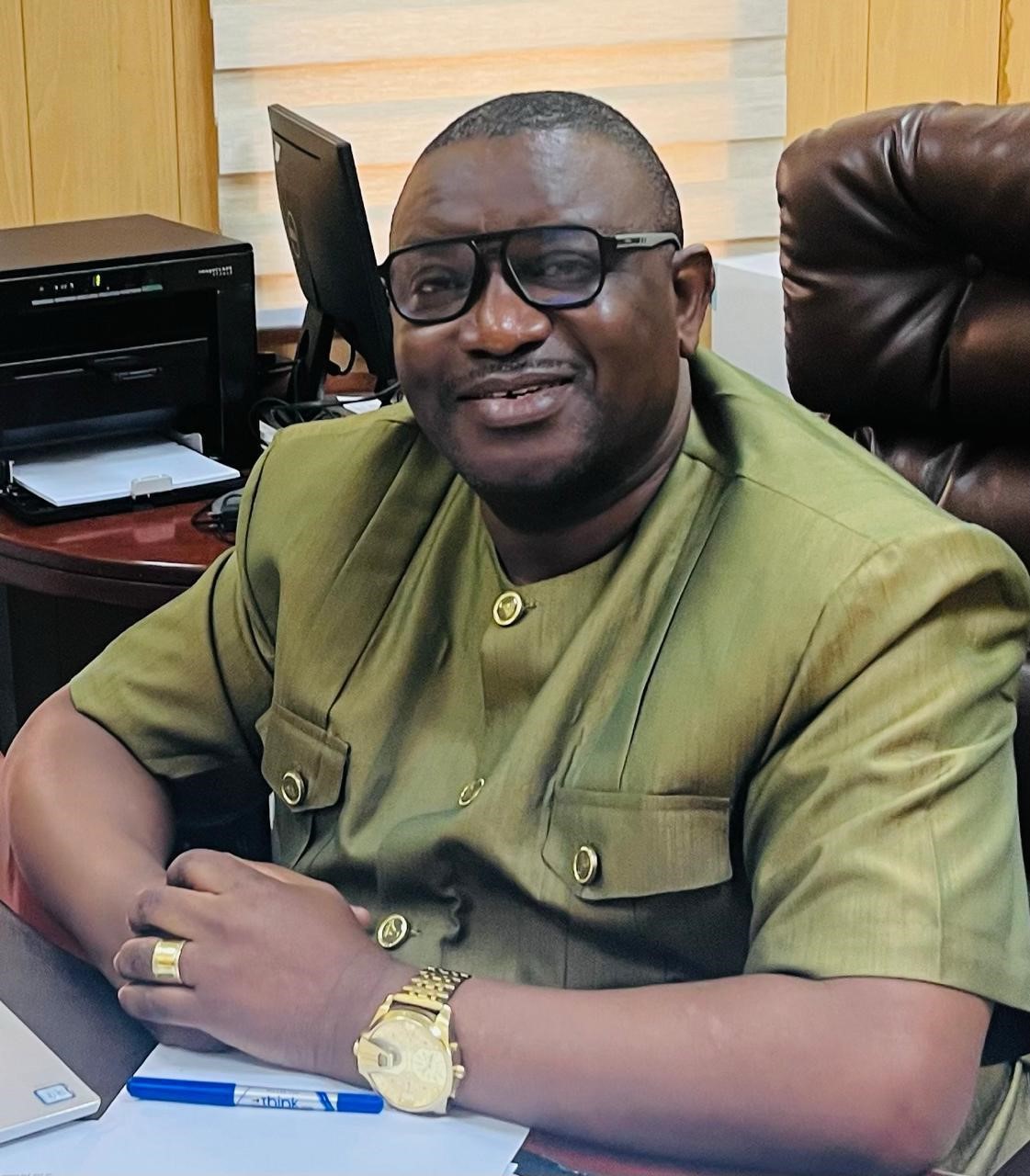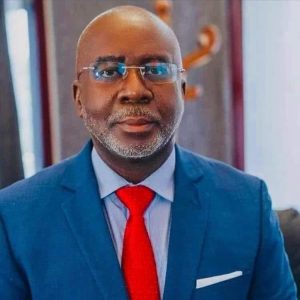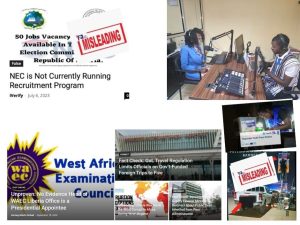Liberia: NEC Executive Director Notes Progress Brought to Electoral Process by Biometric Registration System

Monrovia –The Executive Director of Liberia’s National Elections Commission (NEC), Anthony Sengbe, has noted the ‘significant progress’ made when the Commission migrated from optical mark recognition to a biometric registration system. This biometric system was introduced for the first time in the 2023 General Elections.
In 2023, Laxton Group, Neurotechnology and 3D Technology collaborated to implement a Biometric Voter Registration (BVR) system for Liberia’s general elections. They among other things deployed fingerprint scanners as part of the biometric voter registration kits. According to them, they significantly improved fingerprint data capture quality, enhanced security, and streamlined the whole process, resulting in the successful registration of nearly 2.5 million eligible voters across 2,080 registration centers.
Notwithstanding the successes of the 2023 Presidential and Legislative Elections, Sengbe, however, thinks that elections stakeholders in the country can improve further on the processes.
“Building on the successes achieved during the 2023 General Elections is an important opportunity to identify areas for improvement and ways to strengthen the Electoral framework using technological solutions like authentication of voters on Election Day.”
According to him, one of the most complex tasks for any electoral management body (EMB) is the creation and maintenance of an accurate register of eligible voters. He added: “A biometric voter registration system effectively fulfills this role by serving as a robust tool for detecting duplicate registrations. It is important to recognize that the sole purpose of biometric voter registration is to identify and deter duplicate registrations.”
Following the conclusion of the 2023 Presidential and Legislative Elections, commendations poured in from both local and international observers terming the elections as being free, fair and credible.
Nevertheless, the NEC Executive Director states that to improve upon this morale, the Commission is considering early preparations for the 2029 General Elections, ensuring a more organized, efficient and participatory process.
“To achieve this, it will require the Commission to focus on the following activities during this period: the periodic redistricting of electoral boundaries is necessary in any representative system where single member districts are used. Conducting electoral constituency boundary delimitation/redistricting in compliance with the Constitution and the Electoral Legal and Regulatory Framework of Liberia is a key electoral activity to implement. The results of the delimitation could eventually lead to the increase in the number of registration centers or polling precincts, thereby taking Elections to the people.
“The development of a new six-year strategic plan, which guides implementation of all roadmaps in the electoral cycle is a recurrent activity usually undertaken by the NEC every six years.
“Developing an improved and comprehensive electoral law reform agenda will enhance the credibility of the electoral process. The Commission has already developed a roadmap and an agenda for reform. Consequently, it is expected that the Commission will hold consultations with electoral stakeholders to obtain their input and support to the reform agenda.
“During the 2023 Electoral process, manual verification of voters was done on Election Day. Introducing a biometric authentication device (verifiers) will improve the electoral process in future elections. The goal is to potentially incorporate more modern authentication technologies going forward, with the aim of enhancing the overall integrity, efficiency and credibility of future elections in Liberia.
“Maintaining and Upgrading Software Systems will require adopting appropriate technologies that will address the registration of candidates without the candidates appearing at the Nomination Center and developing special accreditation portals for Observers, Party Agents, and Media Representatives. Applications of technology in elections will improve the electoral processes by making them more accurate and credible. Technology can increase administrative efficiency, reduce long-term costs, and enhance transparency.
“To actively participate in post electoral capacity building activities including short- and long-term training of staff, including enhancing technological knowledge, understanding and use in the areas of data and IT, study tours, Elections observation mission, peer-to-peer knowledge and experience sharing with other electoral management bodies. These activities aim to enhance the Commission’s understanding of electoral processes, foster collaboration amongst other EMBs, promote the exchange of best practices and lessons learned and (BRIDGE) Building Resources in Democracy Governance and Elections (BRIDGE) trainings. These ideals are consistent with the objectives of the ECOWAS Network of Electoral Commissions (ECONEC) and in line with international best practices.”
Meanwhile, NEC Executive Director Sengbe has proposed the imperative need for the setting up of an Electoral Fund in order to ensure the timely availability of funds for the 2029 General Elections.
“By initiating this process early, the government and its partners can facilitate the process of raising funds for the 2029 Elections over a period, rather than waiting until the Election Year. Overall, by initiating the process early, an Electoral Fund can provide numerous advantages in terms of enhancing financial planning, increase fundraising opportunities, reduce Election-Year burden, and facilitate long-term development, thereby contributing to the smooth conduct of the 2029 General Elections. The Commission anticipates, through Electoral Reform, legislation that will integrate these perspectives,” Sengbe stated.
The post Liberia: NEC Executive Director Notes Progress Brought to Electoral Process by Biometric Registration System appeared first on FrontPageAfrica.








